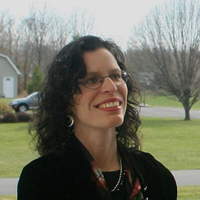Press Release: Op-ed submission from Senator Patricia Rucker
School Choice Can Unite West Virginia
What’s past does not have to be prologue…
That’s the message I want to share with Rev. Matthew J. Watts, who recently opined in this space that expanding access to private school options would cause further racial and economic segregation of West Virginia’s public schools.
Rev. Watts points to the establishment in the 1950s of segregated, private education academies in response to court-ordered desegregation. Those academies were disgusting, and they no longer exist. It’s sad to think that it took our state until the late 1960s to fully integrate all of its public schools.
It’s even sadder to think that we would lean into historic racism as a reason to deny families today access to schooling options that have been empirically proven to have a positive effect on racial integration.
There have been seven studies examining the effect of private school choice programs—school vouchers—on racial integration. Six found positive effects and one found no statistically significant difference. Given that our residentially assigned public school system is still highly racially segregated, this shouldn’t come as a huge surprise.
Not only does private school choice not make segregation worse, it actually fosters racial integration. The education savings account or ESA program that’s currently under consideration at the Capitol will help break down the barriers that have long existed in our traditional system of assigning students to schools based on where they live.
If racial integration isn’t a good enough reason to embrace school choice, let’s consider for a moment what West Virginia families actually say they want.
According to recent state-based polling, 42 percent of West Virginia parents said that if they were given the option, and financial costs and transportation were not an issue, they would select a private school for their child.
An analysis conducted in 2019 showed that private schools in West Virginia have at least 1,786 open seats, with a projected estimate closer to 6,300 open seats for K–12 students. It’s important to note that the ESA under consideration is very expansive; parents wouldn’t just have to use it for private school tuition. They can customize a learning experience for each child.
So if we know school choice fosters racial integration, parents want more private schooling options, and there’s plenty of room to grow, why shouldn’t lawmakers put those options in reach for hard-working families who might not otherwise be able to afford their preferred school?
The traditional K-12 system was designed to serve those who could afford to move to the best neighborhoods, leaving generations of students in lower-income areas stuck in schools that failed to meet their needs. We have an opportunity to break that cycle and empower parents with the ability to make a better choice.
We should take that opportunity and run with it into a future where a child’s success—in school and in life—doesn’t have to be defined by the part of town she lives in.
Senator Patricia Rucker, R-Jefferson, is the Chairman of the Senate Committee on Education. She represents the 16th District, which includes Jefferson County and part of Berkeley County.
